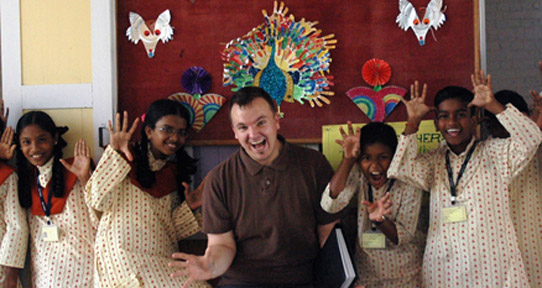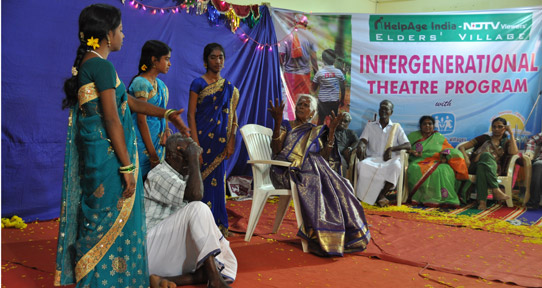Matthew 'Gus' Gusul

Theatre for tsunami survivors
Loneliness is having no one to tell your story to. – Allana Lindgren, Chair, Department of Applied Theatre
It’s been ten years since the world’s deadliest tsunami devastated coastal communities in the Indian Ocean. While local organizations and NGOs continue to repair the damage, a University of Victoria project is taking a different approach to helping the community heal, and as PhD candidate Matthew ‘Gus’ Gusul has discovered, story-telling and fun are key parts of that process.
Gus is the first member of his family to attend university. He grew up in rural Alberta but was drawn to Victoria to join the strong applied theatre community at UVic. The Barbara McIntyre Scholarship helps Gus manage his student debts while he steps back into education to deepen his focus on the intersection of drama and development work.
Using playfulness to facilitate communication
Gus is involved in an intergenerational theatre program that brings together the UVic applied theatre field school, an elders’ village run by Help Age India, and children from local schools funded by the Isha Foundation. The program fosters intergenerational interaction, extracts stories and makes theatre out of it. Or as Gus puts it, “we use playfulness to facilitate communication.”
In his thesis, Gus demonstrates the positive benefits this type of theatre brings to all those involved. Primarily, it creates important intergenerational connections that strengthen the community. Many of the elderly villagers have lost links to their families, so it gives them chance to interact with young people, and to tell their story.
“Our model of creating theatre allows participants to express themselves freely” says Gus. “Something I didn’t expect to discover was how theatre can help people advocate for themselves—to vocalize what the community wants and needs in terms of development.”
A story of triumph
One of the stories the group chose to perform was about the tsunami. “The elders needed to share their scars” says Gus, “And many of the children are too young to remember it, so it’s important they hear that story, especially the way we do it—through fun and laughter.”
Gus views the village’s story as one of triumph, in which he plays the role of facilitator and witness. As a result of the program, community members have the training and methods to continue to use intergenerational theatre to build resilience and create more positive change. Through initiatives like this, the community is becoming stronger than ever before.

